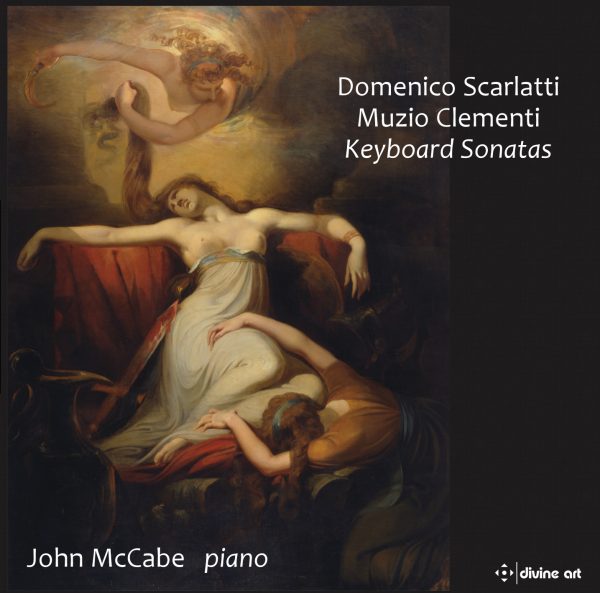The Whole Note
The erudite composer and pianist John McCabe left his mark on British music-making in the 20th century. His gifts as interpreter at the keyboard were very much equal to his abilities as composer. Discographic focus for the majority of his life centred upon neglected composers of old: Haydn, Clementi and Nielsen, among others.
A recent reissue of two LPs that McCabe recorded in the early 1980s is a welcome one, pairing well-loved sonatas by Domenico Scarlatti with somewhat obscure works by the Italian-born English composer, pianist, pedagogue, conductor, music publisher, editor and piano manufacturer (!) Muzio Clementi.
McCabe brings a muscular, cerebral approach to these pieces. One immediately detects a scrupulous composer behind the studio microphones, carefully etching formal structures for the benefit of the listener with accuracy and intellectual rigour. It is evident that McCabe delights in this piano music yet never indulges, electing for efficient lines and tasteful embellishment, reflective of both style and substance.
Among the various highlights of Disc Two (Clementi) is the Sonata in G minor, Op. 50 No. 3, subtitled “Didone Abbandonata” and composed in 1821. Expressive and probing, this music is liberated from the confines of continental neoclassicism, at once mournful and forlorn in prophetic anticipation of 19th century music yet unwrit. From the last of his opuses for piano, Clementi marks the final movement of this sonata Allegro agitato e con disperazione. Such qualifiers were few and far between, even in 1821!
@divineartrecordingsgroup
A First Inversion Company
Registered Office:
176-178 Pontefract Road, Cudworth, Barnsley S72 8BE
+44 1226 596703
Fort Worth, TX 76110
+1.682.233.4978












